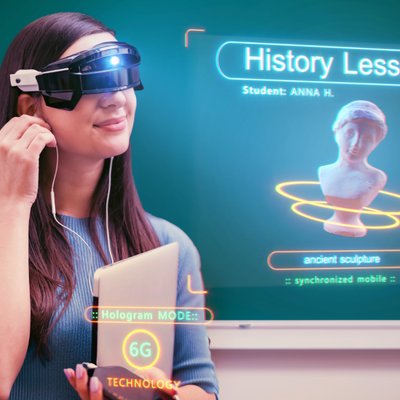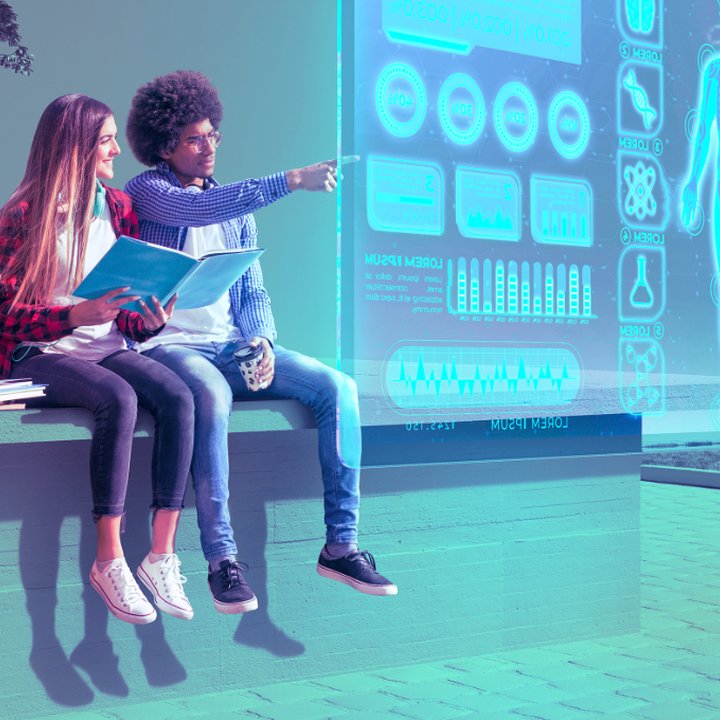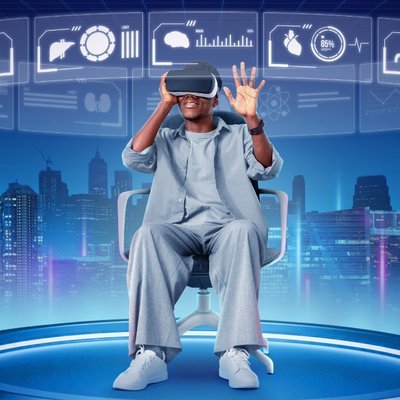Artificial Intelligence (AI) has undeniably reshaped various sectors, and education is no exception. Within the educational landscape, AI can revolutionize teaching methodologies, tailor learning experiences, and provide invaluable insights for educators.
AI has assumed the role of a transformative force that can potentially shape the future of education.
It is of utmost importance for educators to grasp the influence of AI on education and, most importantly, how to equip their students to thrive in an AI-augmented world.
In the realm of modern education, the integration of Artificial Intelligence (AI) presents a host of transformative opportunities, from tailoring learning experiences to data-driven decision-making, all while equipping students for a future intertwined with AI's influence.
AI holds the power to offer personalized learning experiences, adapting to individual student needs and learning styles, rendering education more effective and engaging. In the AI-driven era, education becomes dynamic, with curricula that adapt to each student's pace and style of learning.
-
Data-Driven Decision-Making:
Educators should harness the capabilities of AI to analyze vast quantities of data, enabling them to make informed decisions about their teaching methods and track students' progress more effectively. This data-driven approach ensures that students receive tailored support when and where it's needed.

-
Professional Development:
Educators should seek opportunities for professional development in AI-related fields. Courses offered by organizations such as the International Society for Technology in Education (ISTE U) can significantly enhance their understanding of AI and its applications in the classroom. As AI evolves, educators need to stay updated and continually refine their knowledge and skills.
-
Scaffolding for Multilingual Students:
AI can assist educators in scaffolding resources for multilingual students, making learning more accessible and tailored to their unique needs. By utilizing AI, educators can create a more inclusive and diverse learning environment, catering to the individual requirements of each student.
Incorporate AI concepts into class discussions, encouraging students to explore how AI operates, its training methods, and its potential impact. This approach fosters critical thinking, sparking curiosity and analytical skills. By engaging students in discussions about AI, educators can ensure that students are well-versed in this transformative technology.
Educators should teach students how to use AI tools responsibly and maintain academic integrity. It is vital to emphasize the significance of understanding AI technology's ethical and moral dimensions. This education on ethical AI use cultivates responsible AI users and creators.

-
Changing Role of Educators:
AI is not a substitute for educators but a tool to enhance their roles. It allows educators to focus more on application, projects, and class discussions, providing a richer learning experience. The teacher's role evolves from being the sole source of information to becoming a facilitator and guide for students' exploration and creativity.
Encourage educators to join online communities and follow educational technology accounts for AI integration ideas. They can adapt these ideas to their classrooms and stay updated on the latest AI developments. Online communities foster a sense of collaboration and shared expertise, making the integration of AI into education a collective effort.
-
Preparing for the Future:
As AI becomes increasingly integral to the workforce, educators must equip students to use AI tools responsibly, both in higher education and their future careers. This forward-looking perspective ensures that students are well-prepared to navigate the AI-driven job market and contribute effectively to the industries of tomorrow.
AI holds the potential to revolutionize education by personalizing learning, improving teaching methods, and providing insights that enhance educational outcomes.
Educators play a pivotal role in this transformation, and by following these recommendations, they can create a learning environment where students are prepared to thrive in an AI-driven future. As AI continues to advance, educators' commitment to adapt and evolve will ensure that their students are well-prepared for the opportunities and challenges that lie ahead.












